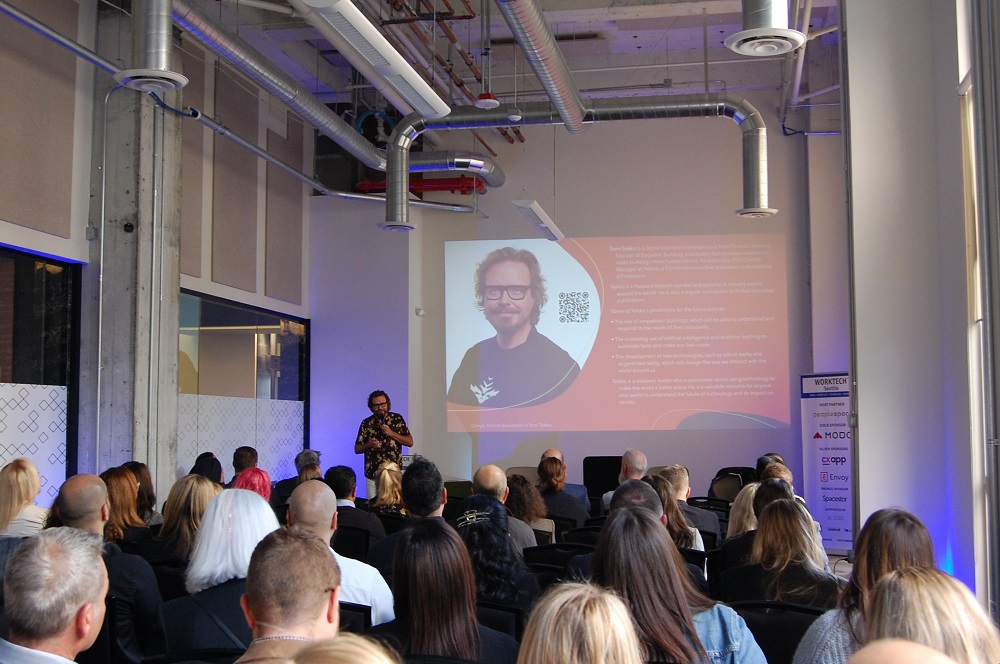
Developing The Workplace 2.0 - Highlights from WORKTECH Seattle
Leaving attendees with a profound sense of the evolving dynamics of the workplace and the role of flexibility in shaping the future of work
WORKTECH Seattle brought together an enthusiastic audience eager to explore the future of work. In a survey that highlighted the city's quest for regeneration and transformation, 70% of attendees expressed that the key to Seattle's revival lies in improved public safety. Interestingly, only 11% voted for strategic Return to Office (RTO) mandates and local business generation, while just 4% emphasized proximity to transportation systems.
Kudos should be given to event organisers, Unwired Events, who coordinate these conferences globally. A staggering 88% of participants attended the event with a thirst for new ideas and inspiration, and 71% were motivated to connect with like-minded individuals, showing the importance of industry events for sparking innovation, acting as a catalyst of continuous improvement and the creation of solutions for the workplace’s most challenging problems.
Read on for our key takeaways from the event!
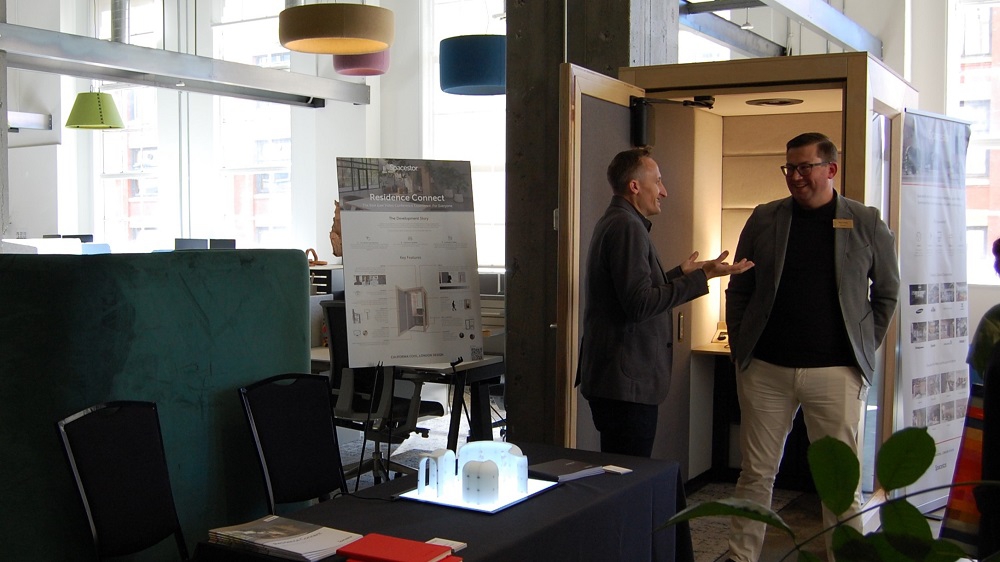
Keynote Speaker: How to Think Like a Futurist
Brian David Johnson, an applied futurist with a track record of working with corporate organizations like Mastercard, emphasized the need to apply practical solutions to the ever-evolving landscape of work. Challenging the common notion of the future as a fixed destination, “we aren’t all on a train to and urged the audience to actively engage in shaping it. He highlighted the importance of changing the stories we tell ourselves about the future, sparking discussion and embracing the idea that there's no one-size-fits-all solution, “there is no silver bullet, but rather a silver buckshot” – an ‘all of the above” approach to improving the urban landscape.
Spacestor exhibited their Residence Connect Accessible, a video call pod design to provide the Best Ever Video Conference Experience, for Everyone. It's the result of a 2-year development journey with one of the world’s leading global tech companies: audio and visual privacy, controllable light levels and ventilation, height-adjustable working position and working space all tested and honed to provide optimum user experience. Masterful acoustic properties were effective in the midst of a noisy conference room as visitors could experience the quiet sanctury bought about with a push of a button! If you missed us at the event and would like to experience our products, reach out and we’ll be in touch!
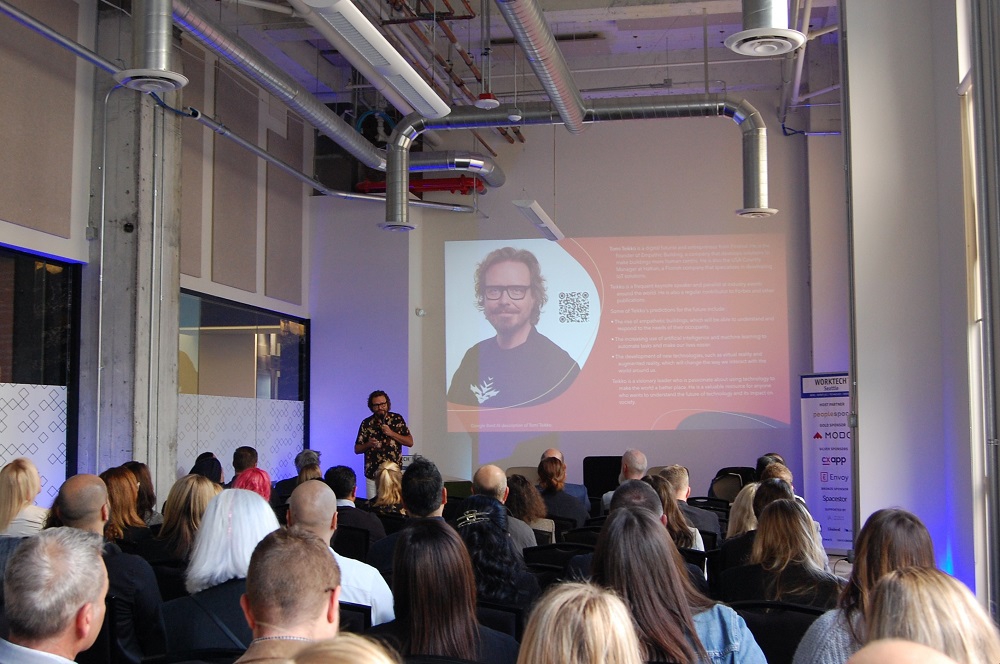
Expert Panel - Urban Regeneration and Workplace Trends
A distinguished panel including Eric Lonergan from Savills, Clark Bickett of IA Interior Architects, Rachel Smith from the Seattle Chamber of Commerce, Lyle Bicknell representing the City of Seattle, and Boaz Ashkenazy from Simply Augmented discussed key themes for future office buildings. The themes encompassed, courtesy of IA Interior Architects, were:
- Amenity & Culture
- Learning & Mentorship
- Diversity, Equity, and Inclusion
- Hybrid Working
- The 'Cool Factor'
- Flexible Work
- Health & Wellness
- Commuting Experience
- Integration
- Exterior and Interior
The panel stressed that previous urban transformations resulted in cities that people wanted to be in, not just had to be in. Flexibility of where and when one works emerged as having a premium value by employees, with 49% of the audience voting it as the most valued thing from an employer in the next year, playing a pivotal role in retention and attraction. There were also discussions around focused work and where it is being done and the observation that there is an increasing demand for the highest quality office assets in the best locations.
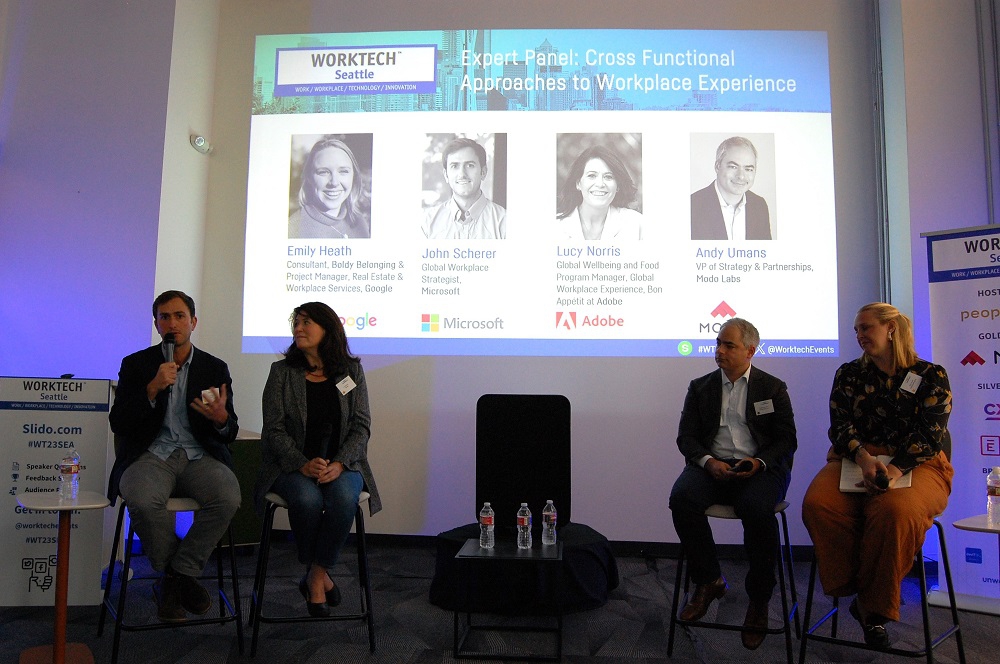
Expert Panel: Cross-Functional Approaches to Workplace Experience
A further expert panel, featuring Lucy Norris from Adobe, John Scherer from Microsoft, Emily Heath from Google, and Andrew Umans from Modo Labs, tackled the idea that the workplace cannot exist in isolation. Microsoft's approach to measuring success with new buildings includes sensor data on utilization, network size, and employee sentiment. Adobe focused on the wellbeing of its managers and identified that employees primarily returned to the office for team collaboration, energy, and leadership exposure, rather than amenities. The discussion also highlighted the importance of leadership buy-in for Return to Office initiatives.
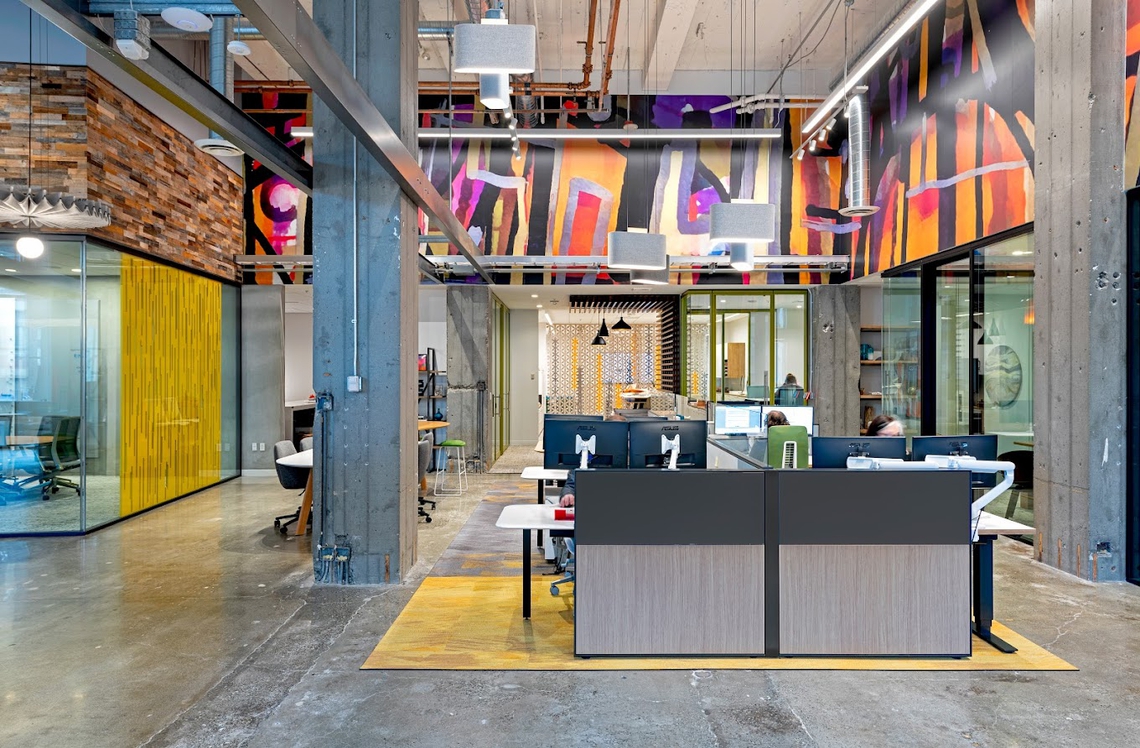
An audience poll revealed that ‘colleagues and team members’ had the most significant impact on workplace experience, with 70% of the vote. In contrast, technology, company culture reflection, and amenities and services ranked much lower at 4%, 2%, and 0%, respectively. This drives home the point that although sleek technology and cutting-edge amenities are definitely a relevant bonus, it is not the primary reason workers are drawn back.
As the event concluded, the biggest challenges faced by professionals in the future of work were highlighted. These challenges ranged from a common theme of budget constraints to the cultural nuances of workplace experiences across the globe and the over-prominence of technology.
WORKTECH Seattle left attendees with a profound sense of the evolving dynamics of the workplace and the role of flexibility in shaping the future of work.
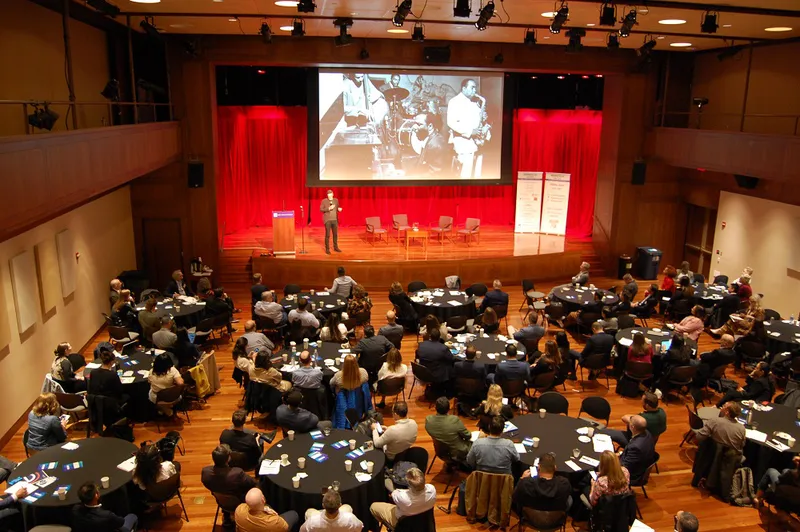
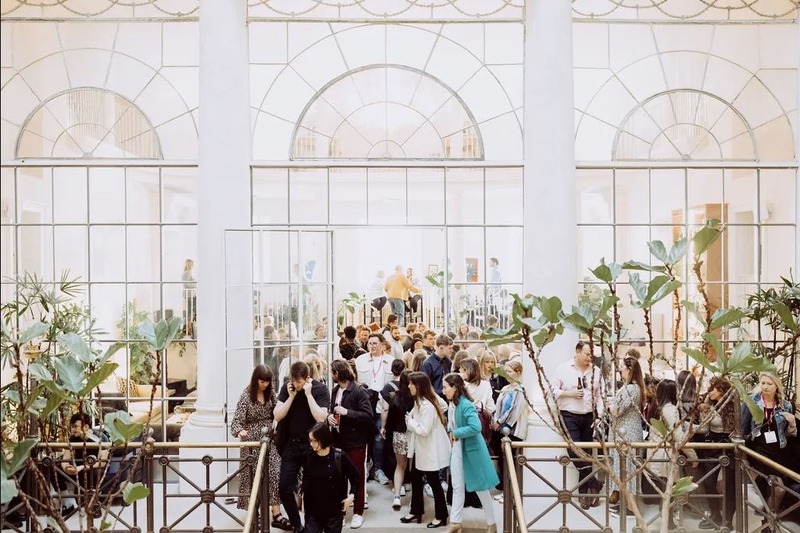
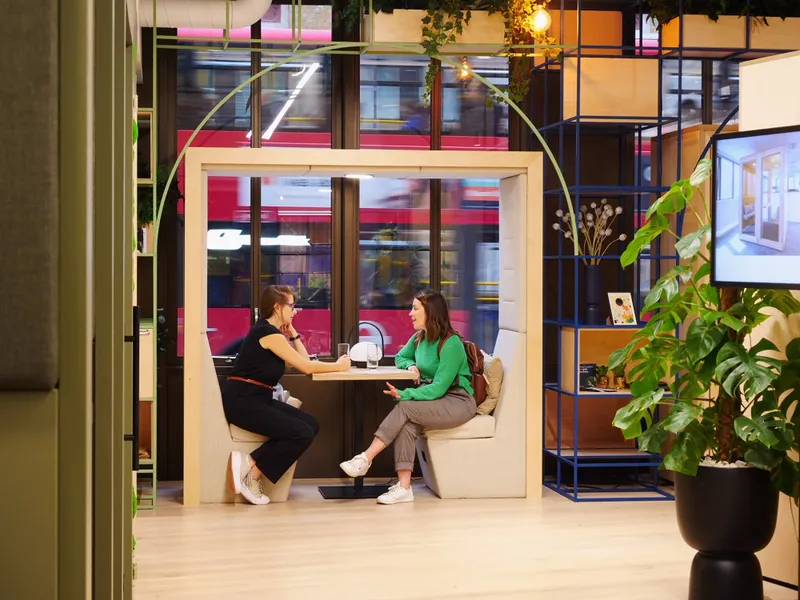
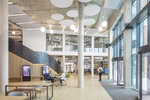
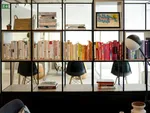
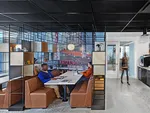

An experiential and destination space for architects, designers and workplace strategists looking to discover ways to c…
ARCHITECTURE & DESIGN
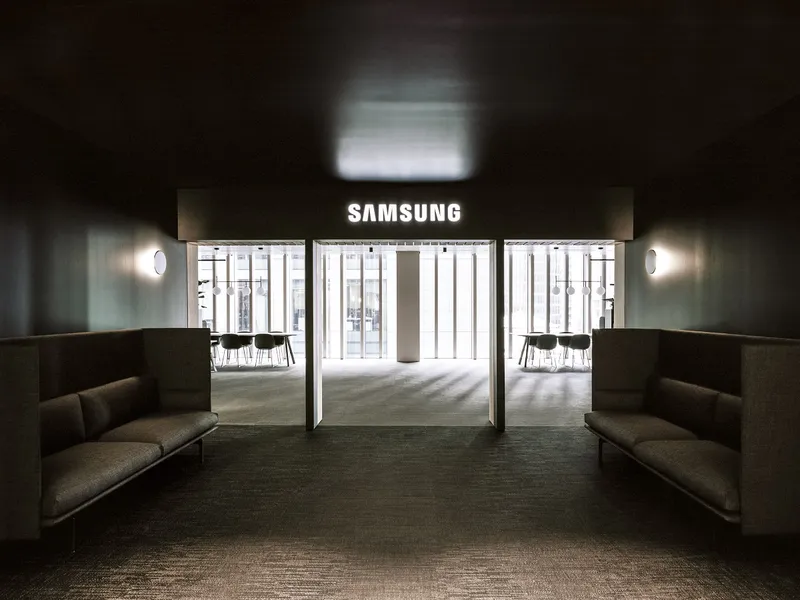
Pared back, content design that paves the way for Samsung’s hybrid, innovative and flexible workforce to build the worl…
TECHNOLOGY & IT
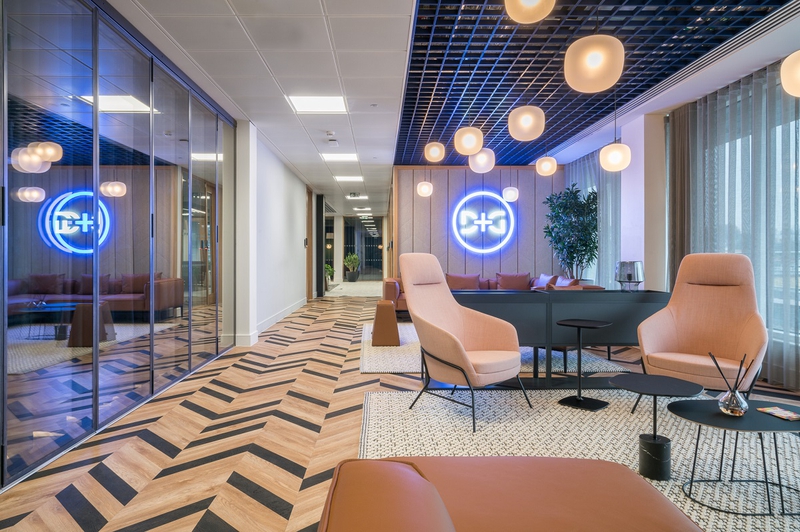
A sympathetic design, created for the hybrid world with sustainable roots and award winning results.
PROFESSIONAL SERVICES